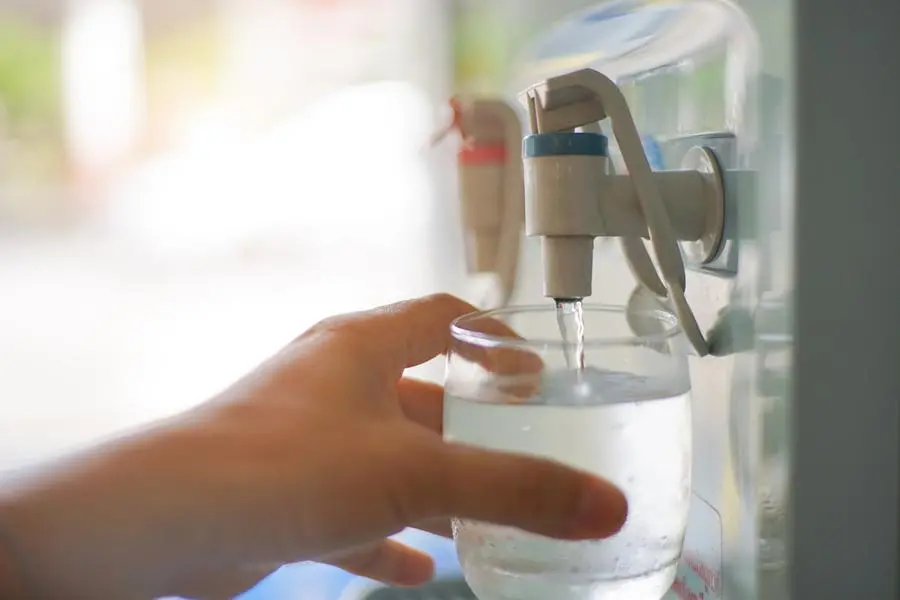PHOTO
Dubai, UAE: Ecolab, a global sustainability leader offering water solutions and services, today announced new findings from its 2024 Ecolab Watermark™ Study. The study sheds light on growing consumer concerns about water security while highlighting significant progress in sustainability efforts by both the government and businesses in the United Arab Emirates (UAE).
The World Resources Institute projects global water demand to increase by 20% to 25% by 2050, and that the entire population of the MENA region will live under extremely high water stress by then. As one of the world’s most water-stressed nations, the UAE, guided by its Water Security Strategy 2036, continues to strengthen its resilience against water scarcity, demonstrating a proactive and forward-thinking approach to water stewardship.
The second edition of Ecolab’s Watermark™ Study, was conducted in 15 countries across six regions, including the United States, Latin America, Europe, Asia Pacific, India/Middle East/Africa (IMEA) and China. The study aims to provide a global overview of water stewardship through water’s importance, usage, connection to climate, and responsibility among key consumer populations, revealing several key insights in the UAE:
- 71% of UAE consumers list clean and safe water as a significant environmental concern over the next five years —up from 67% in 2023.
- 82% of UAE consumers believe the government has made significant progress towards sustainability targets in the past year, compared to 41% in the U.S. and 32% in Europe.
- 75% of UAE consumers believe that businesses have made significant progress towards sustainability targets in the past year, compared to 40% in the U.S. and 35% in Europe.
- 75% of UAE consumers value reporting transparency and believe progress when it is reported.
Commenting on the report, Stefan Umiastowski, Ecolab's Senior Vice-President CEO India, Middle East & Africa said: “One year on from our inaugural Ecolab Watermark Study that provided valuable insight from which actions could be taken, this year’s findings recognise the UAE’s significant progress in water conservation. The nation, today, is a global leader in water management.
“Maintaining and building on these achievements, however, will require ongoing collaboration between government, businesses, and communities to accelerate the deployment of innovative solutions that secure a sustainable water future.”
The study highlights an encouraging trend: UAE consumers are becoming more confident that business and government leaders are serious about addressing water scarcity. Compared to last year, the perception of how much each of the following types of leaders care about the impact of their organization on water conservation has increased:
- Business leaders: from 71% in 2023 to 77% in 2024.
- Government leaders: from 83% in 2023 to 84% in 2024.
- Non-profit and conservation leaders: 76% to 81% in 2024.
The willingness of UAE consumers to support businesses that prioritize sustainability is also on the rise. The study found that 92% of consumers are prepared to pay a premium for environmentally friendly products—up from 88% last year—underscoring the rising environmental consciousness among UAE consumers.
Notably, UAE consumers view the food & beverage, manufacturing, and agricultural industries as the most responsible for water use and conservation, reflecting the importance of targeted efforts within these key sectors.
Umiastowski added: "Sustainability has become a critical factor for success, and consumers are placing increasing value on companies that invest in sustainable practices. Businesses that prioritize environmental responsibility are not only building trust but also positioning themselves for long-term growth. Sustainability and profitability can coexist—there needs to be no compromise, and in today’s market, this is a necessity. This shift reflects the growing demand for meaningful action and measurable progress.”
Ecolab reports the Watermark Study annually to encourage, educate, and inspire others to take action by providing a unique consumer perspective on the water crisis. This perspective offers key information on where and how stakeholders—such as governments, NGOs, businesses, and others—can collaborate to address the issue.
The Ecolab Watermark Study was conducted in partnership with Morning Consult in early 2024 among a sample of general population adults. Ecolab will update and release new editions of its Ecolab Watermark™ Study.
To see the full country-specific results, please visit: watermark.ecolab.com/united-arab-emirates/
Media enquiries:
Ramzi Alabras, Mojo PR,email ramzi@mojo-me.com
About Ecolab
A trusted partner for millions of customers, Ecolab (NYSE:ECL) is a global sustainability leader offering water, hygiene and infection prevention solutions and services that protect people and the resources vital to life. Building on a century of innovation, Ecolab has annual sales of $15 billion, employs more than 46,000 associates and operates in more than 170 countries around the world. The company delivers comprehensive science-based solutions, data-driven insights and world-class service to advance food safety, maintain clean and safe environments, and optimize water and energy use. Ecolab’s innovative solutions improve operational efficiencies and sustainability for customers in the food, healthcare, life sciences, hospitality and industrial markets.
About the Ecolab Watermark™ Study
Launched in 2023, the Ecolab Watermark Study is annual research conducted by Ecolab. The global study reports on the state of water stewardship by measuring water’s importance, usage, connection to climate and responsibility among key consumer populations. This research was conducted between January 3 – January 17, 2024, among a sample of general population adults in six regions, including the United States, Latin America, Europe, Asia Pacific, India/Middle East/Africa (IMEA) and China. The interviews were conducted online. Results from the full study have a margin of error of plus or minus 2–3 percentage points. Some geographies may be weighted with fewer variables depending on local census data availability.




















